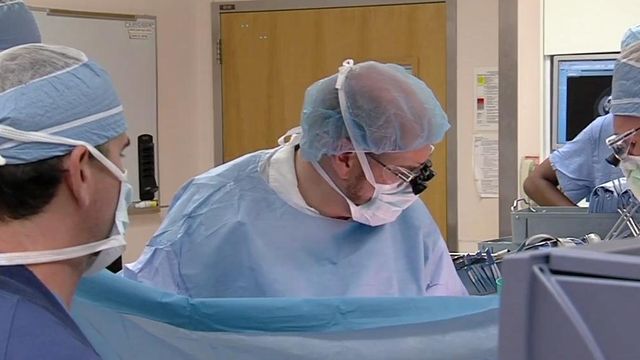Knowing father's medical past can help detect prostate cancer, docs say
Family history plays a powerful role in a man's risk for prostate cancer, but many men aren't aware if another family member had the condition.
Posted — UpdatedHaving a father with the disease doubles the risk for his sons, but dads don't often share that information. According to WRAL's Dr. Allen Mask, knowledge is power when it comes to family health history.
Prostate cancer turned the tables on Dr. Jim Smith, a 62-year-old surgeon. When a small spot on his prostate became worrisome, he ended up on the other side of the operating table.
"I went back to my doctor," said Smith. "And he said, 'I think you need to switch from the observation group to the treatment group based on the fact that our pathologists think it's a little more aggressive.'"
When Dr. Smith had his prostate removed, he wasted little time telling his two grown sons -- but a recent Cleveland Clinic survey says that's not typical of many families. Results show men rarely talk about their health history with other men in the family.
According to Smith's surgeon, Dr. Eric Klein, knowing your family history can save your life. Survey results show that more than 60 percent of men polled wish their father had talked to them more about health concerns.
"We know there are multiple genes that are inherited from your parents that increase your risk of getting prostate cancer, and we have ways of measuring them now," he said. "Knowing your family history is important because we can determine if you're at higher risk."
One option is an advanced DNA test that can identify gene mutations that increase a man's risk of getting prostate cancer.
"Our ability to sequence DNA has gotten so good that there is germ-line genetic screening available now to men with a positive family history to help determine what their genetic risk is," said Klein.
Smith's son, Mike, is training to be a doctor and also plans to follow in his father's footsteps when it comes to his own health.
"I think knowing this experience and knowing what happened to him will help me be able to make decisions for myself," said Mike Smith.
• Credits
Copyright 2024 by Capitol Broadcasting Company. All rights reserved. This material may not be published, broadcast, rewritten or redistributed.





